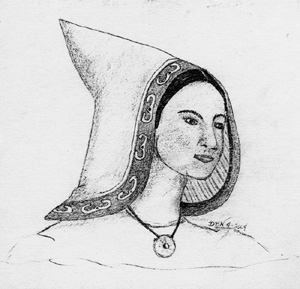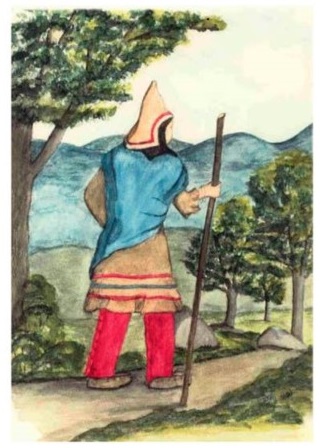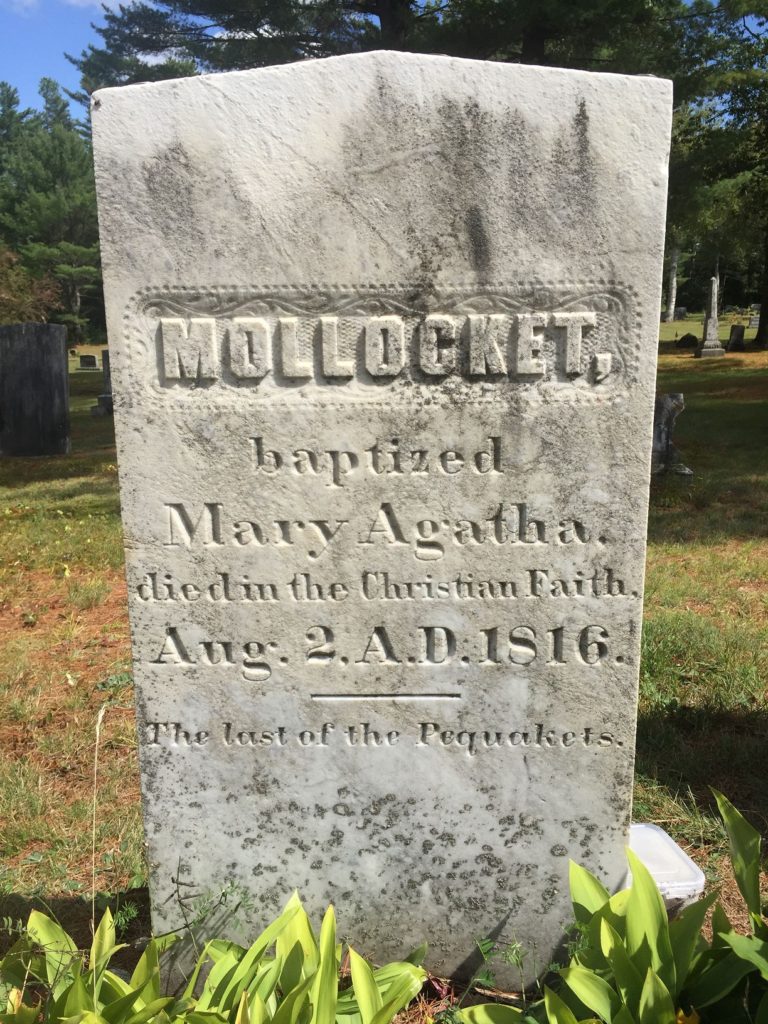According to the outstanding research compiled by the Bethel Historical Society, we know that Molly was an Abenaki healing woman. She wandered throughout the Upper Androscoggin and Connecticut Rivers in a traditional Abenaki manner. She collected her healing medicines and provided for herself as she had been taught by her ancestors. Her Indian name was Singing Bird. Her Christian name was Marie Agatha. She probably pronounced it Mali Agget which sounded like Molly Ockett to the English settlers. Her willingness to share her healing skills endeared her to many area settlers.


 Molly Ockett was extremely adept in traditional Abenaki crafts, a fact much admired by the early white settlers of this region. Using techniques passed down through generations of her family, she created baskets, moccasins, leather-work, bark boxes, and pottery. She was especially skilled in beadwork, quillwork, weaving, and embroidery, as confirmed by a handful of surviving examples of her talents. A small birchbark box with cover, decorated with dyed porcupine quills (photo, left), was made by Molly Ockett for the family of Israel Kimball (1769-1829) of Middle Intervale (Bethel) and is now in the collection of the Bethel Historical Society.
Molly Ockett was extremely adept in traditional Abenaki crafts, a fact much admired by the early white settlers of this region. Using techniques passed down through generations of her family, she created baskets, moccasins, leather-work, bark boxes, and pottery. She was especially skilled in beadwork, quillwork, weaving, and embroidery, as confirmed by a handful of surviving examples of her talents. A small birchbark box with cover, decorated with dyed porcupine quills (photo, left), was made by Molly Ockett for the family of Israel Kimball (1769-1829) of Middle Intervale (Bethel) and is now in the collection of the Bethel Historical Society.
Molly Ockett is buried in the Woodlawn Cemetery in Andover, Oxford County, Maine, in section 1, row 8, grave 6.
MOLLOCKET,
baptized
Mary Agatha,
died in the Christian Faith
Aug. 2, A.D. 1816,
The last of the Pequakets.
In 1970, the Bethel Area Summerfest name was changed in honor of the Indian woman whose generosity and self-reliance have become legendary. The festival has been called Molly Ockett Day for 50 years.
For a more complete story of the life and times of Molly Ockett, please visit the Bethel Historical Society’s webpage, Molly Ockett and Her World. https://www.bethelhistorical.org/legacy-site/Molly_Ockett_and_Her_World.html.
We thank the Bethel Historical Society for their permission to share the photographs on this page with you.

